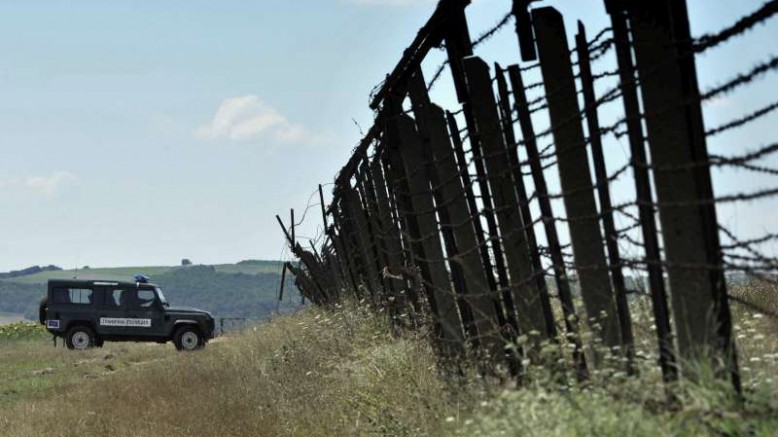As the EU-Turkey agreement came into effect on today, the 20th March 2016, there could again emerge a tremendous change of the main route, that people use to move towards Western Europe. Greece will turn literally into a detention zone and many migrants will likely try to avoid the deportation back to Turkey. Recently, the Bulgarian State Agency for Refugees (SAR) published with a delay the registered asylum applications from January and February, this year. According to its statistics, 3,160 asylum-requests were registered during that time. German state media reported about a total influx of 7,500 refugees who ended in Bulgaria until the 16th March. In addition, several volunteers, working in different camps in Bulgaria, claimed that there is a bigger influx of migrants arriving, during the last days and the police is detecting 200-300 migrants on a daily basis in the area of Malko Tarnovo. Only in the last 2 1/2 months Bulgaria has detained 1,124 migrants.
The European Commission Vice-President for Budget and Human Resources Kristalina Georgieva stated recently that Bulgaria is better prepared than other countries to react on higher “migrant pressure“. In the years 2013/14, Bulgaria was one of the first countries, which was affected from the war in Syria, as more and more refugees arrived from Turkey via the green border. Mainly Bulgarian citizens administered first aid and volunteers helped in assisting the overwhelmed SAR, until several procedures were institutionalized and the horrible conditions in the hasty new founded military camps in Vraszdebna, Voenna Rampa and Harmanli have been slightly improved. In the upcoming years, Bulgaria invested mainly in renovations of the open camps and created new places for asylum seekers, mainly in the camp of Harmanli, but hadn’t approved a single integrational program for the refugees.
Bulgaria’s prime minister, Boyko Borissov, stated, that every refugee will be registered in Bulgaria and therefore no neighboring states will be burdened. He called for honesty and not for national egoism. Such a statement could give hope, but the reality appeared in a different way. In 2014, the SAR registered 11 081 asylum applications, 5162 of them were granted with a refugee status which is more than the half. With this status the refugees are allowed to travel abroad and many people did this immediately after they received it, most of them never came back to Bulgaria. Those of whom that have been granted with a humanitarian status tried to leave Bulgaria as well, many appeared in Germany and were not deported back, because of several decisions of administrative courts. Still, the Dublin regulation in Bulgaria is in force, but in most of the cases the people are not getting deported back to Bulgaria.
Last week, PM Boyko Borissov wrote a letter to the Presidency of the Council of the EU, Donald Tusk. With it he threatened to boycott the EU-Turkey deal. He urged that Bulgaria should be included in the agreement. In September 2015, Borissov had already articulated his concerns against a possible Hotspot in Bulgaria. Actually in the final draft paper of the agreement, there is only written, that Turkey should “cooperate with neighboring states“. It is unclear whether the Black Sea or the green border will be used for the new routes, or if migrants from the north camps in Greece will decide to cross the Greek-Bulgarian border in larger groups, because many of these camps are in really bad conditions.
Recently, the Austrian interior ministry Johanna Mikl-Leitner visited, together with the defense minister Hans Peter Doskozil, Bulgaria. Both of them saw the fence on the Bulgarian-Turkish border and ensured their strong support for the protection of the border, in terms of providing extra personnel and different technical equipment (e.g. like night vision devices). In the south-west border, Bulgaria and Macedonia “agreed to conduct joint air and land operations for border control and protection“.
At a recent statement, given for the European People’s Party (EPP), Borissov repeated again what he used to say very often in the past:
Bulgaria is an exemplary member state in terms of protecting the EU external borders and letting migrants in only through the official border checkpoints.
From this statement it is not clear whether Bulgaria will open its borders, if a larger influx of refugees will collectively appear to such „official checkpoint“. Bordermonitoring Bulgaria hopes, that Bulgarian’s prime minister won’t refuse such requests for asylum from such groups or arranges unlawful push-backs, as they used to happen in the past and even very recently from Macedonia to Greece.

